Iranian Teenager Shot In Head During Protests Succumbs To Injuries

A 16-year-old Iranian boy, who was shot deliberately by regime forces during protests, succumbed to his injuries after eight months.

A 16-year-old Iranian boy, who was shot deliberately by regime forces during protests, succumbed to his injuries after eight months.
Abolfazl Amir-Ataei died Saturday after enduring great suffering from a severe head injury amid protests in Shahr-e Ray south of Tehran during Iran’s “Woman Life Freedom” movement.
Informed sources told the Hegaw Human Rights Organization that Amir-Ataei was shot in close range by government forces, with a tear gas projectile striking him from a meter away, causing a critical injury and shattering his skull.
He underwent several major surgeries, and finally, on May 21, his mother published a video showing that he could move his fingers and react to his mother's words; however, in less than a week he passed away.
Abolfazl was taken to the hospital the same day after being hit, but some relatives of the teenager said government agents forced his family not to complain to any institution.
The young man’s mother, who endured the excruciating pain caused by Abolfazl’s injuries, posted an image of her son on Instagram, saying "my moon vanished, I wish demise of yours too".
During the protests following the death in custody of Mahsa Amini in September, hundreds of children and teenagers were killed, injured, and thousands imprisoned by the regime.
Human rights organizations identified at least 70 children and teenagers killed during the protests.
The underage protesters were killed by direct shots to their heart and head or being beaten by the regime forces.
As the number of children killed in the protests increased, "Death to the Child-killing Regime" turned into one of the main slogans in street rallies or chanted over rooftops.
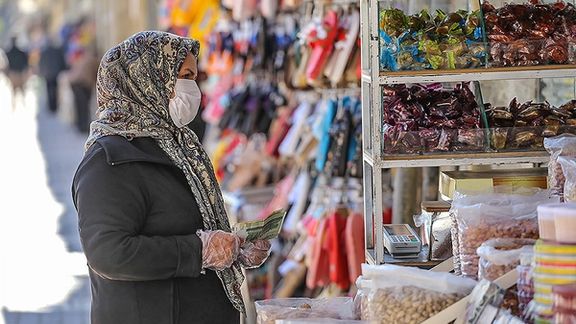
While some Iranian officials are concerned about economic hardship and fear a looming hyperinflation, others claim there are plans under way to fix the situation.
The differences in opinion among officials about the economic crisis has surfaced in the media while the current government is halfway through its four-year term of office.
Expediency Council chief Sadeq Amoli-Larijani warned in an interview with Etemad Online that Iranians are finding it increasingly difficult to cope with their financial hardships and the government needs to take urgent measures. Amoli-Larijani said that he has informed officials of the alarming state of the economy.
He said the situation is so urgent that officials must come up with immediate, short-term solutions to tackle the country’s economic problems.
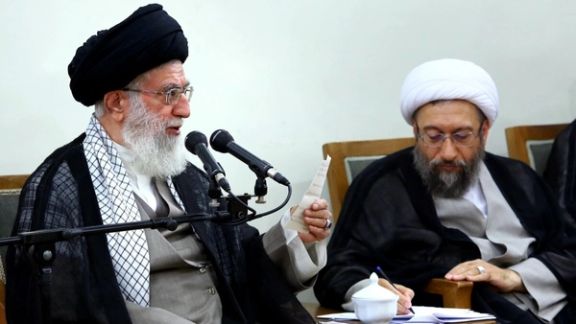
Iran’s currency has lost half its value in less than a year and millions of people have sunk into poverty. Iran has refused to reach a nuclear deal with the United States, which could lift crippling economic sanctions.
Meanwhile, former lawmaker Ezzatollah Yousefian-Molla told Nasmeh News that Iran's economy will face hyperinflation starting in June. He said the rise in prices between May 2022 and May 2023 is unbelievable. According to the Iranian Central Bank, the point-to-point inflation between those two dates has been over 55.5 percent. Others have offered higher estimates approaching 70 percent.
Yousefian-Molla suggested that the government had better not announce inflation figures under the circumstances. He warned the situation is getting even worse. He even said that Supreme Leader Ali Khamenei’s latest speech to Iranian diplomats about changing Iran’s diplomacy was alluding to the fact that something needs to be done to improve the status of the economy.
He added that Iranians are finding it increasingly difficult to make ends meet although they do their best to spend less. Even prices of bread, cheese and eggs have skyrocketed. In such a situation, he said, the people will not believe government lies about economic growth.
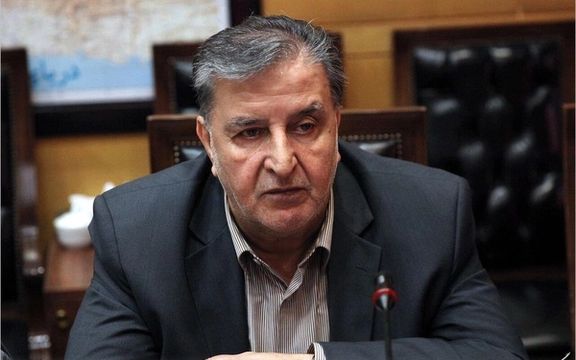
Despite the warnings, vice president for economic affairs Mohsen Rezaei says economic reforms are on their way. However, he admitted that the current situation is “painful” for the people. Meanwhile, despite being a member of the government, he criticised the government for not keeping up with technological progress.
He also criticized Iranian governments during the past 80 years for trying to take over exisiting companies and factories rather than genuinely seeking to make Iran an industrial country. Rezaei added that the factories the government has established are on a declining course.
He maintained that Iran has been successful only in defense industries. “In other areas, we have spent a lot of money and energy while we did not have enough progress.” He further boasted that “Big powers fear our defence industries.”
He also criticized the budgeting system in Iran and said the government allocates budget but has no idea from where the funding should come. Rezaei added that Iran’s banking system also needs to be reformed to be compatible with international standards.
Meanwhile, he blamed the people for the lack of economic progress saying that the country needs economic reforms, but implementing those reforms will lead to protests.
In another development, the Speaker of the Iranian Parliament Mohammad Bagher Ghalibaf said in an interview with the IRGC-linked Tasnim news agency that “I promise to bring about economic stability with a five-year plan to overcome inflation.”
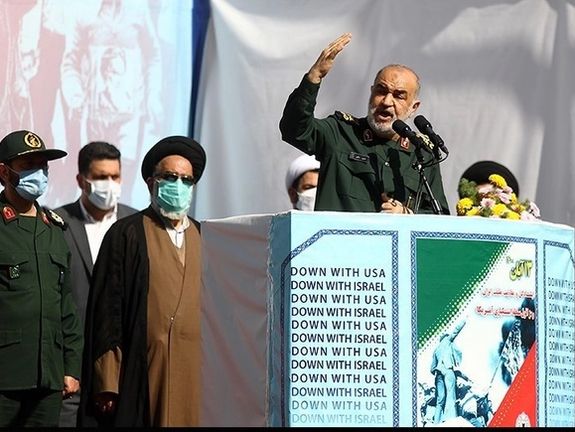
As part of its interventions in non-military fields, Iran’s Revolutionary Guard (IRGC) is now promoting fertilization and childbearing.
IRGC Commander Hossein Salami said on Saturday that in addition to face-to-face counseling, the military branch will also offer incentives regarding marriage and childbearing.
Iran's population growth rate has dropped significantly in the past 30 years.
“In relation to infertility treatment, we set up a center in Najmiyeh Hospital, which provides good services,” added Salami in a ceremony to mark National Youth Population Day.
“When the number of children in families decreases, the level of resistance, sacrifice, and vitality in the country also drops,” stated Salami.
According to him, the IRGC is top on the list among the armed forces in terms of bearing children.
Iran’s Supreme Leader Ali Khamenei says efforts to increase the country's population are among the most urgent duties and essential policies of the Islamic Republic.
He has repeatedly warned about “dangers of an aging population” and called for measures to boost birth rates.
The IRGC and Khamenei’s calls for childbearing come as tens of millions of Iranians have sunk into poverty in the last decade because of an inefficient economy, low growth and foreign sanctions.
Parliament passed legislation last year to outlaw tubectomy, vasectomy, and the free dispensation of contraceptives other than where pregnancy would threaten a woman's health.
The law obliges the government to offer incentives, including a 7.5-fold increase in child-benefit payments to government employees, interest-free loans, and other benefits. While the new law does not include a ban on prenatal screening, doctors have been advised not to encourage it.
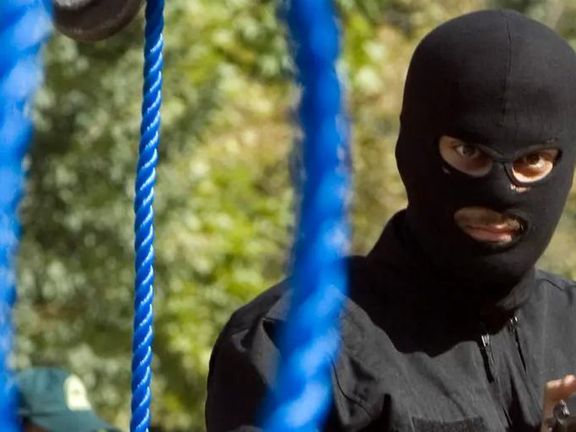
Over 80 families of those killed by the Iranian regime called for immediate global action to stop the recent execution spree in Iran.
In a statement on Saturday, the petitioning families called the recent wave of executions in Iran a revenge by the Islamic Republic on the people for anti-regime protests.
They also called on all activists and organizations defending human rights in the world to do their best to end the death penalty in Iran and save the lives of prisoners at risk.
“Suffering from the deep wounds of losing our loved ones, whether on the street or at the gallows, we cry out to stop the executions and killings of people. End all death sentences immediately. Executions for any reason and for any crime must be stopped. We don't let you kill our loved ones anymore,” read the statement.
The wave of executions carried out by the Islamic Republic in recent weeks has led to yet another global outcry against the Iranian regime.
After the execution of Majid Kazemi, Saeed Yaqoubi and Saleh Mirhashmi, three protesters imprisoned in Isfahan (Esfahan) on May 19, people in different Iranian cities took to the streets and chanted slogans, burning symbols of the regime to express their determination to overthrow the clerical rulers.
Iranian expats in different countries also held protest rallies against the Islamic Republic on May 20, to slam the recent wave of executions in Iran which has taken the lives of 110 people in the past month.
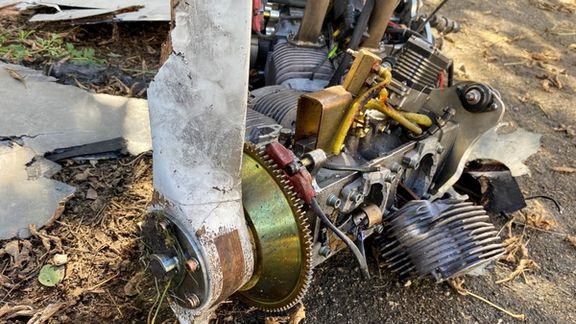
Tehran has accused Ukrainian President Volodymyr Zelenskyy of anti-Iranian propaganda in his call for Iran to halt the supply of kamikaze drones to Russia.
Foreign ministry spokesman Nasser Kanaani said Saturday that Zelenskyy’s comments were designed to attract more arms and financial aid from the West.
Zelenskyy in a video address on Wednesday called on Iranians to stop their slide into "the dark side of history" by supplying Moscow with drones.
Tehran’s comments came during a week when Russia again used swarms of Iranian drones against civilian targets in Ukraine.
Russia has used hundreds of Iranian Shahed drones to target Ukraine’s civilian and military targets and to overwhelm air defenses during mass missile attacks.
Iran initially denied supplying Shahed drones to Russia but later said it had provided a small number before the conflict began. Ukraine says the drones have played a major role in Russia's attacks on cities and infrastructure.
"The Ukrainian president's repeat of delusional claims against the Islamic Republic of Iran is in line with the anti-Iranian propaganda and media war aimed at attracting as many arms and financial aid as possible from Western countries," Kanaani said in a statement carried by Iranian media.
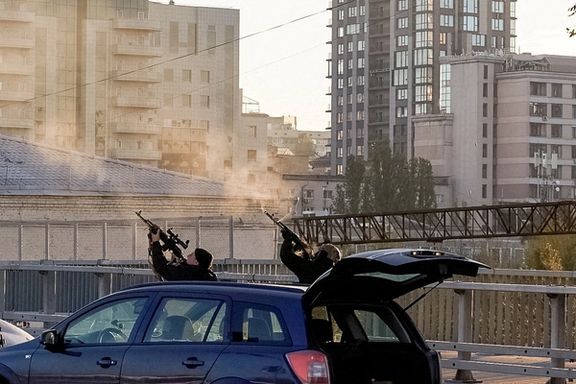
Ukraine, Kanaani said, has been refusing to allow an independent investigation into these claims. However, Ukraine has displayed numerous parts of downed Iranian drones and even one complete example in intact shape.
Russia has boosted its military cooperation with Iran since the launch of its full-scale invasion of Ukraine in February 2022. It has admitted using Iranian-made drones, but it is now seeking to boost its own production.
In his Wednesday address, Zelenskiy said: "The simple question is this: what is your interest in being an accomplice to Russian terror?"
"Your Shaheds, which terrorize Ukraine every night, mean only that the people of Iran are being driven deeper and deeper into the dark side of history," he said.
Many Iranians on social media have criticized Zelenskyy for addressing “Iranians” rather than the Islamic Republic regime for supplying the drones to Russia. They highlighted that Iranians are also victims of the regime and they have actually helped Ukraine by staging anti-government protests throughout 2022 and 2023.
Western powers supporting Ukraine and supplying air defense systems have condemned Iran’s military cooperation with Russia. The United States, which has suspended nuclear talks with Iran has listed Tehran’s weapons supplies to Moscow as one of the issues preventing fresh talks.
Washington and its key European allies have also imposed sanctions on dozens of companies and individuals that they discovered assisting Iran’s drone program or involved in their shipment to Russia.
In response to a question by Iran International in February about reports that Iran has supplied new drones to Russia, State Department’s former spokesperson Ned Price said that the US has been warning about this expanding “two way” relationship since last year.
Price reiterated that “we are taking action to do everything we can to counter this relationship and to counter the transfer of technology…we have exposed this linkage and we are continuing to galvanize countries around the world to maintain focus on this.”
He went to characterize the alliance between Moscow and Tehran as a “profound threat to the people of Ukraine but also a security relationship that has the potential to be a threat way beyond.”
It was the US national security advisor Jake Sullivan who first warned in July 2022 that Iran was planning to supply military drones to Russia.
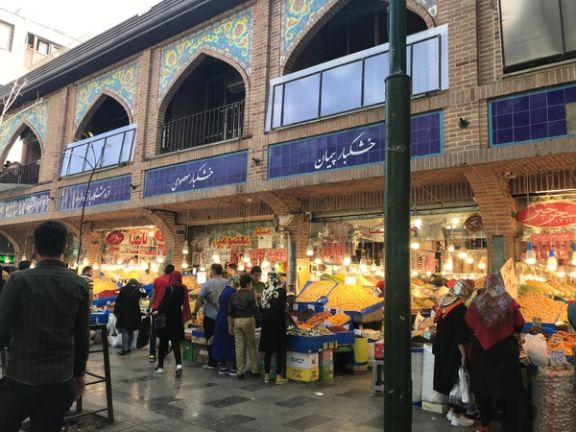
Iran intended to import radiation-contaminated chickens from Belarus despite the risk to the public, an official document reveals.
The disclosure comes in a "very confidential" letter from the Ministry of Agriculture published on Friday by Nariman Gharib, an internet researcher.
The document was addressed to Peyman Pak, Deputy Agriculture Minister, and was signed by Mohammad Ali Nasiri, Advisor to the Minister and Head of the Security of the Agriculture Ministry on May 10.
In the letter, Asiri admits that due to the radioactive contamination in parts of Belarus after the Chernobyl tragedy, the import of chicken from the country is banned.
In a tweet, Gharib said it means that the Islamic Republic intended to import chickens from Belarus to control the market but in fear of political and health consequences, the import from Belarus was stopped.
The letter also expressed concern about the disclosure of the issue in the Farsi-language media abroad.
It stated that “chicken contaminated with radioactive substances may lead to specific diseases and risks caused by the production of food with contaminated raw material.”
Earlier this year, Iran and Belarus agreed a deal on agricultural cooperation, under which the former Soviet state sends products including poultry, grain and dairy supplies.
This is not the first time the Islamic Republic has imported or intended to import contaminated food. Two years ago, ISNA news agency reported that about five thousand tons of livestock feed contaminated with aflatoxin had been imported but stopped at customs.
Jalal Mahmoudzadeh, a lawmaker, said on Saturday that in the past year three million tons of wheat was imported from Russia, which was highly contaminated with lead.
He said it was not possible to stop the shipments but that they were mixed with stored wheat to lower the overall lead level.